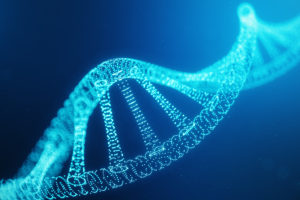
Because of the preconceptions about DNA evidence, it can be a challenge for defendants to try to secure an acquittal when the prosecutor is presenting substantial DNA evidence in court. However, there are many ways to overcome this challenge and to secure a not guilty verdict. You can also discuss the possibility of negotiating a plea agreement with a prosecutor if you are concerned that DNA evidence in your case is likely to lead to a conviction.
LV Criminal Defense understands the rules and requirements of DNA evidence and we work very hard to help ensure that you have the best chance of a favorable outcome in a criminal case– even when the prosecutor plans to use DNA evidence against you. We can help you to contact your own expert witnesses and to conduct your own investigations in order to undermine how effective the presentation of DNA evidence is for prosecutors. Give us a call today to speak with a Las Vegas criminal defense lawyer who understands the impact of DNA on your case and who can work to help you fight aggressively against a conviction based on DNA.
Defendants need to know exactly what DNA is in order to determine the best approach to responding to a criminal charge based on DNA evidence. Nevada Revised Statute section 176.09114 defines DNA as “deoxyribonucleic acid which is located in the cells of a person and which provides the genetic blueprint of a person.”
DNA is found in virtually all living organisms, including humans. It is the hereditary material which essentially makes up a person’s genetic blueprint. Virtually all cells within the human body have DNA in them, which means a person who leaves any cells at the scene of a crime has generally left his or her DNA behind.
The information in DNA is stored in the form of a code which is made up of different chemical bases. In human DNA, there are approximately three billion bases divided into different categories including adenine (A); guanine (G); cytosine (c); and thymine (T). In all people, more than 99 percent of the bases are identical. However, DNA bases pair up in different ways and the specific sequence of the bases determines how an organism is built and maintained.
Nick Wooldridge has a long track record of representing clients accused of serious federal and state crimes in Nevada.
The patterns that DNA arranges into are called chromosomes, and the chromosomes are grouped together in 23 different pairs. Each person receives half of his DNA chromosomes from his mother and half from his father. Each person has unique DNA, with its own individual st of chromosomes.
The chances of someone having the same chromosomes, other than identical twins, is one in 70 trillion. Because each person has unique chromosomes, DNA is considered reliable evidence to determine if someone was at the scene of a crime. In some cases, the presence of a persons’ DNA is considered strong evidence that the individual was not just at the crime scene but that the individual actually committed the crime.
DNA is powerful evidence, not just because there is science behind it, but also because so many jury members believe strongly in the power of DNA because they hear about it on numerous television shows. However, just because a prosecutor has DNA evidence does not mean you will be convicted.
There are many ways to defend yourself and to make a jury doubt that DNA proves your guilt when accused of a criminal offense. You need a knowledgeable Las Vegas defense lawyer who can help you to develop a sound strategy for dealing with DNA evidence.
LV Criminal Defense can help. Give us a call today to learn more.
When I initially met with Mr. Wooldridge, he took the opportunity to sit and go over my problem with me. He described details in my case which he found disturbing and explained why he I should have him on my side.